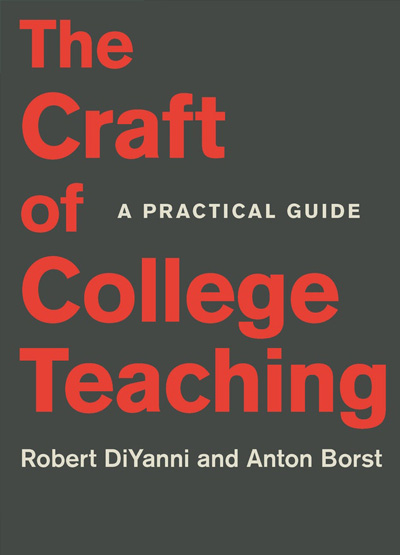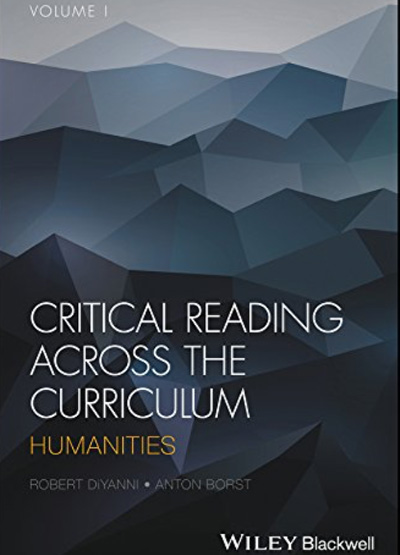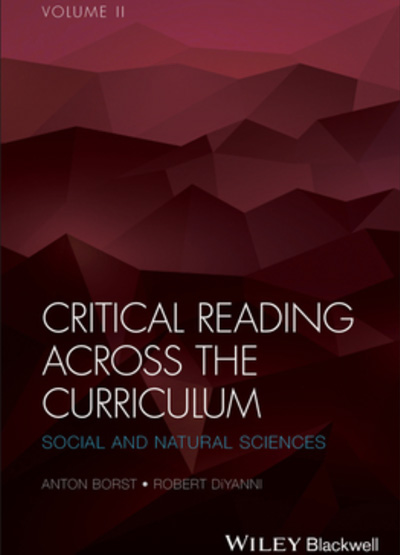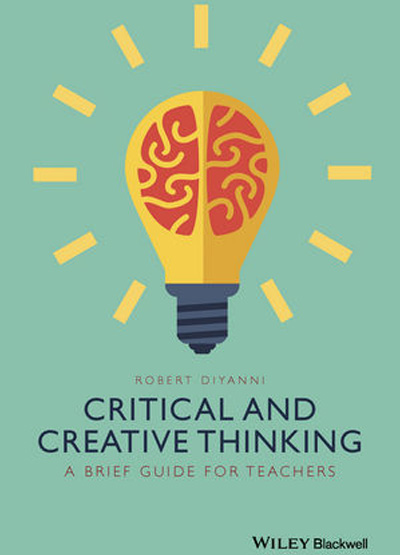Inspired! Learning With the World’s Great Teachers

Preface
Why Teaching Matters
Each of us has likely had one teacher in our lives who has made all the difference for us. I have been lucky to have had more than a few. And with half a century of teaching experience myself—grades 8 through graduate school—I have been privileged, on occasion, to have been that teacher for some of my own students. I have seen the proverbial light bulb go off, the spark of joy in learning light up a student’s mind and fire up his and her life.
I know for a fact that teaching is one of the most important things any of us can do. Through teaching we have the power to change lives. We have the potential to alter the entire trajectory of people’s lives. Although some seem born to the art and craft of teaching, most or us learn the ropes as we go. We learn by going where we have to go. They learn by doing what we need to do. The key to successful teaching is desire—the desire to impart knowledge, advance learning, inspire others to learn in ways that improve and enrich their lives.
This set of chapters is for anyone for who yearns to make a difference in the lives of others. It’s for all who believe that teaching matters, learning matters, and that teaching well and inspiring others to learn matter now more than ever. It’s for those who want to light the spark of learning in others—who want to inspire and not just inform.
Teaching is much more than a job, career, and profession. Beyond these dimensions, teaching is a vocation and a summons to the mysteries and pleasures of learning.
We are all teachers now…..
At a time when all lives matter, I believe it’s important, critically so, to ensure that students are not forgotten or relegated to the margins. Students’ lives matter. Teachers’ lives matter. Teaching and learning matter to them and to all of us as well.
CHAPTER 1: Socrates
Socrates (469–399 B.C.E.) is the great teacher who established a way of teaching that came to be named for him—“the Socratic Method.” Socrates taught with and through questions, as he sought to discover whether, as the Oracle at Delphi insisted, he was the wisest of men. He questioned others—poets, philosophers, and politicians in particular—ostensibly to find someone wiser than himself, in the process discovering that they knew little and understood less. Described as “a philosophical urban guerrilla,” Socrates revealed the ignorance of those he questioned, inciting dislike, even enmity.
The path to truth, for Socrates, was through careful analysis and rigorous examination of one’s assumptions—about piety, justice, love, and other abstract concepts. In questioning people’s beliefs, he elicited their assumptions through dialectical inquiry. He urged self-examination through questioning of one’s ideas, and rigorous analysis of one’s assumptions.
Socrates’ pursuit of truth was practical, not theoretical. He pursued right living in conjunction with his advice to “know thyself.” His goal was to acquire self-knowledge leading to the wisdom that would guide him in living a moral life. His self-analysis derived from his belief that only the examined life was worth living, and that philosophical inquiry, to be of value, had to be applied toward the goal of living virtuously. In Rescuing Socrates, his book about how great books can be life-altering, Roosevelt Montás describes Socrates as “the archetypal teacher, the archetypal free-thinker, the archetypal intellectual saint.”
Socrates’ goal was not to win arguments but to arrive at understanding. Dialectic, as Socrates practiced it, required patient deliberation. His aim was to discover truths rather than debate opinions; he engaged in what today we call guided inquiry.
[1] Rebecca Goldstein. Plato at the Googleplex (Pantheon, 2014), 11.
[1] Rescuing Socrates: How the Great Books Changed My Life and Why They Matter for a New Generation (Princeton University Press, 2021), 77.
[1] Lynda George. “Socrates on Teaching: Looking Back to Move Education Forward.” Procedia – Social and Behavioral Sciences 174 (2015) 3970 – 3974.
[1] Ibid, 3972.
[1] Richard Tarnas. The Passion of the Western Mind (Ballantine, 1991), 34.
[1] Alexander Nehamas. “What Did Socrates Teach and to Whom Did He Teach It?” The Review of Metaphysics. Vol. 46, No. 2 (Dec. 1992).
[1] Ibid., 282.
[1] Ibid.
[1] Socrates: Ironist and Moral Philosopher (Cambridge University Press, 1991), passim.
[1] Goldstein, 303.
[1] Tarnas, 39.
[1] Translated by Hugh Tredennick and Harold Tarrant (Penguin, 2003), 61.
—Michael Hogan, Emeritus Humanities Chair, American School Foundation of Guadalajara. Author of Teaching from the Heart
—Marla Wolf, New York University, Graduate School of Art and Science
—Todd Cherches, adjunct professor of leadership at NYU and Columbia University, and author of VisuaLeadership: Leveraging the Power of Visual Thinking in Leadership and in Life
—William V. Costanzo, SUNY Distinguished Teaching Professor, and author of World Cinema Through Global Genres; When the World Laughs: Film Comedy East and West
—Trevor Packer, Senior Vice President, AP Program, The College Board
We were supremely fortunate to have Bob DiYanni present at our ELSA France Teacher Development Days in Paris for those teaching native-standard English in bilingual, and international schools, and French schools with English-language sections. Enthusiastic participants flocked to his warm, lively, engaging sessions. We marvelled at the range of topics he presented, from critical reading and thinking, through rhetoric and composition, and across literary genres, a spectrum of authors and more. We admired his wisdom, enjoyed his wit and humor, learned from his practical suggestions for engaging students to make their learning stick. His teaching of what to teach, how to teach, and why is a wonder.
—Nancy Willard-Magaud, Emeritus Inspectrice Générale Déléguée, American Option, French Baccalauréat, Special consultant, ELSA France ( English-Language Schools Association, France), Emeritus Director, American Section, Lycée International, St. Germain-en-Laye, France
A Sampling of My Valued Clients
I’m proud to have worked with such a wide range of incredible organizations, across the country and around the globe. Following is a list of them (in alphabetical order).
List of Valued Clients
Alliance for International Education
Advanced Placement Program, US
Advanced Placement Program, Canada
American International School, Dubai
American Overseas School of Rome
Armstrong State College
Association of American Colleges and Universities
B
Bedford NY, Public Library
Beijing Foreign Studies University
Brigham Young University
C
Central and Eastern European Schools Association
City University of New York
Conference on College Communication and Composition
D
DeKalb Community College
Department of Defense Dependents Schools (DoDDS)
E
Eastern Connecticut State University
English Language Schools Association, France
European Council of International Schools
F
Florida Atlantic University
Florida International University
G • H
Houston, Texas Public Schools
I • J • K • L
Lycée Francais de New York, NYC
Lycée Rochambeau, Washington DC
Lycée St. Germain en Laye, France
M
Marc Garneau Collegiate Institute, Toronto, Canada
Mediterranean Association of International Schools
Mercy College
Metropolitan Museum of Art
Modern Language Association
Morristown Beard School
National Association of Independent Schools
National Association of Teachers of English
National Council of Teachers of English
New York School for the Deaf (Fanwood), White Plains, NY
Near East South Asia Council of Overseas Schools
New York University, College of Arts and Science
NYU College of Dentistry
NYU Faculty Resource Network
NYU School of Professional Studies
NYU Steinhardt School of Education
NYU Tandon School of Engineering
O
Office of Overseas Schools, US Department of State
P
Pace University, College of Arts and Sciences
Pasadena School District, Pasadena, TX
Pound Ridge, NY Public Library
Q • R • S
Saint Michael’s University School, Victoria BC, Canada
St. Joseph’s College, Long Island NY
Scarsdale Public Schools, Scarsdale, NY
Southeast English Conference of Two-Year Colleges
T
Trinity College School, Port Hope, Canada
U
Union College
University of Guadalajara
University of Madrid Complutense
University of North Caroline, Chapel Hill
University of New Hampshire
V
Valencia Community College
Virginia Commonwealth University
W
Westminster School, Simsbury, CT
X • Y • Z
Xavier High School, NYC
Other books
Get in touch
with Robert DiYanni



